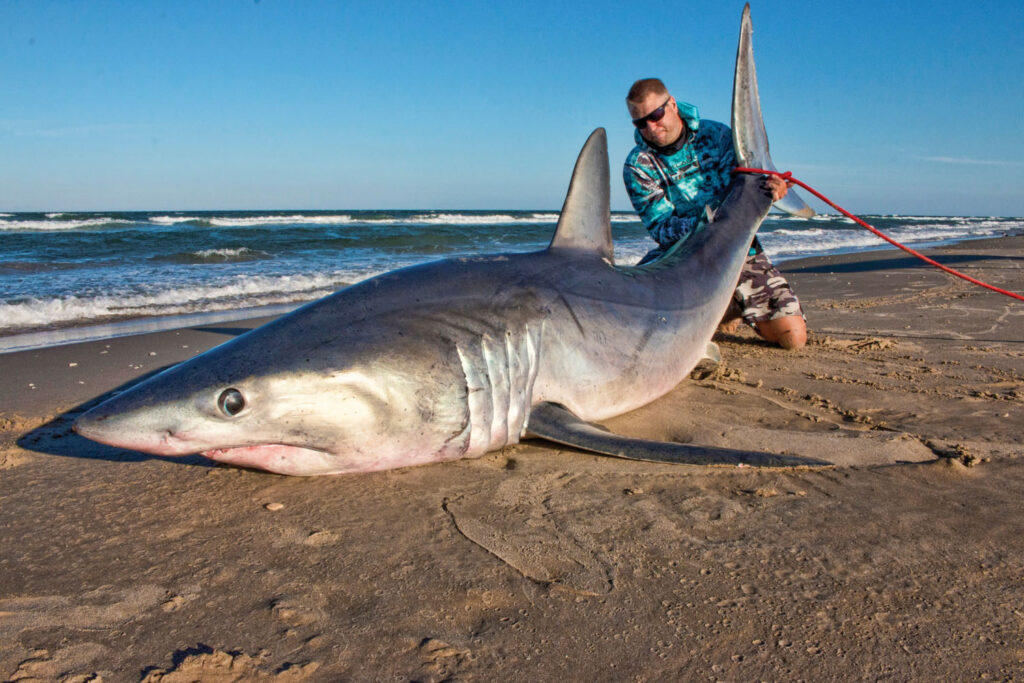North Atlantic mako sharks are key apex predators found in most of the world’s oceans. Though often caught as bycatch, they are frequently kept for their meat and highly valuable fins. Makos are the second most commonly caught shark in longline and net fisheries, and demand for their fins continues to fuel heavy exploitation. Despite being on global extinction watch lists, they remain heavily fished. A 2017 ICCAT stock assessment classified North Atlantic makos as severely overfished, estimating a 60% population decline over the past 75 years. Known for reaching speeds up to 70 km/h—the fastest of any shark—they still cannot outrun overfishing and exploitation.
Efforts to protect makos have met mixed results. In 2020, ICCAT proposed a ban on retaining North Atlantic makos, though it initially failed to pass. Scientific models suggest the population might recover if annual catches remain below 300 tons. Yet current fishing pressure is nearly six times that amount, leaving only an estimated 8% chance of recovery. Yikes. Even when released, makos face a roughly 30% post-release mortality rate, meaning that simply catching them—intentionally or not—can be lethal.

Shortfin Mako, Texas Saltwater Fishing Magazine, Image
Their biology makes recovery even more challenging: makos grow slowly, reproduce infrequently, and have low population productivity. These pressures threaten not just one regional stock, but populations worldwide. While the impact may seem distant to those on land, makos play a critical ecological role, helping regulate species such as bluefish and maintaining balance in open-ocean ecosystems.
There has been some progress. The species is listed under Appendix II of CITES, which regulates international fin and meat trade. In 2021, ICCAT finally enacted a retention ban for North Atlantic makos, reducing direct take and improving survival odds. Still, experts agree that stronger protections are needed. Eliminating finning, reducing bycatch, and establishing protected zones where makos are common would significantly aid recovery.
Ultimately, preventing the loss of North Atlantic makos requires global awareness and commitment. Without meaningful action, one of the ocean’s most iconic predators could disappear within our lifetimes.
Citations:
- David W. Sims et al.
,Shortfin mako sharks speeding to the brink.Science371,355-355(2021).DOI:10.1126/science.abg2355
Schultz, M., Hoffmayer, E. R., Sulikowski, J. A., & Byrne, M. E. (2025). Bycatch survival of shortfin mako sharks (Isurus oxyrinchus) in the U.S. Atlantic pelagic longline fishery. PLOS One, 20(9), e0330999. https://doi.org/10.1371/journal.pone.0330999
Shortfin Mako | British Sea Fishing. (2013, February 18). British Sea Fishing | Information and Advice on Sea Fishing across the UK. https://britishseafishing.co.uk/shortfin-mako/
Featured Image
LA Times, 1,300lb Shortfin Mako, Image
